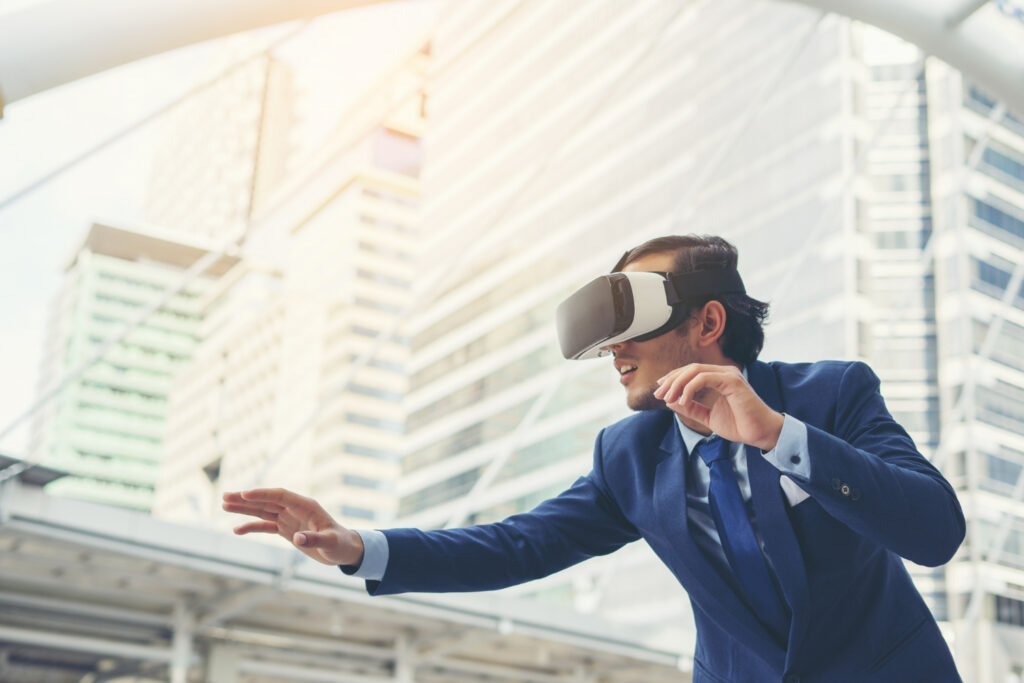Technology is evolving faster than ever, altering the way we live, work, and interact. Breakthroughs in areas such as artificial intelligence, blockchain, and biotechnology are opening up new possibilities that once seemed impossible. The future is bringing innovations that will have a major impact on our daily lives. In this article, we explore some of the most exciting tech trends shaping our world today.
1. Artificial Intelligence: Redefining Efficiency and Creativity
Artificial intelligence (AI) is no longer a distant dream; it’s now an integral part of our routines. From virtual assistants like Siri and Alexa to data analysis tools, AI powers numerous applications. In the coming years, AI will go beyond productivity and efficiency; it will also be a catalyst for creativity. AI-generated art, music, and even literature are becoming mainstream, offering creators powerful tools to expand their work.
One significant area where AI is making strides is healthcare. AI algorithms can now analyze medical images, predict potential health issues, and assist doctors in diagnosing complex cases. The efficiency and accuracy that AI brings can potentially save lives and reduce the burden on healthcare systems worldwide.
2. Blockchain: Beyond Cryptocurrencies
Many people think of blockchain technology solely in terms of cryptocurrencies such as Bitcoin, but its uses go far beyond that. The transparency and security features of blockchain make it perfect for applications in industries like supply chain management, real estate, and healthcare. Envision a future where your medical records are safely stored on a blockchain, allowing you to decide exactly who can access your health information.
Decentralized finance (DeFi) is rapidly growing in popularity, as people search for alternative ways to manage their money without the need for traditional banks. Blockchain technology offers financial services with more transparency and reduced costs. Even industries such as online entertainment are beginning to incorporate blockchain, with platforms like Bitcoin betting site using its security features to create better user experiences.
3. Virtual and Augmented Reality: Immersive Experiences
Virtual reality (VR) and augmented reality (AR) have transformed from novelty gadgets into essential tools with a broad range of uses. VR is finding growing use in education, offering immersive learning opportunities. Picture students virtually touring ancient Rome or exploring the interior of a human cell – all without leaving the classroom.
AR is set to transform industries such as retail and healthcare. With AR, shoppers can try on clothes virtually or visualize how furniture will fit into their space before purchasing. In healthcare, surgeons are utilizing AR to project 3D models of organs during operations, enhancing precision and minimizing risks. As these technologies progress, VR and AR will offer even more immersive experiences, gradually merging the physical and digital realms.
4. Biotechnology: Editing Genes and Curing Diseases
Biotechnology is changing how we address some of the biggest challenges in healthcare. With tools like CRISPR, scientists can modify genes with precision, which could lead to curing genetic disorders and eliminating inherited diseases. Imagine a future where conditions like cystic fibrosis or sickle cell anemia no longer exist—this is the potential of biotechnology.
Biotechnology is also helping in the fight against climate change. Lab-grown meat offers a more sustainable option compared to traditional livestock farming, which is a major source of greenhouse gas emissions. By developing innovative ways to produce food, biotechnology helps lower our carbon footprint and support a greener future.
5. Green Technology: Addressing Climate Change
The need for sustainable energy and the fight against climate change are driving advancements in green technology. Solar and wind energy are already popular alternatives to fossil fuels, and research into newer, more efficient renewable energy sources is ongoing. In the near future, we might see advancements in energy storage that make renewable power even more reliable, ensuring a consistent supply of green energy even during low sunlight or wind periods.
Electric vehicles (EVs) are also a key component of the green tech movement. With improvements in battery technology, EVs are becoming more affordable and practical for everyday use. Companies like Tesla and emerging players are working to build a world where clean energy transportation is the norm.
6. Quantum Computing: Unleashing Unimaginable Power
Quantum computing, though still in its early stages, has the potential to transform the way we solve problems. Unlike traditional computers that use bits to process data as either 0s or 1s, quantum computers use qubits that can be in several states at once. This capability allows quantum computers to tackle extremely complex problems much more efficiently than conventional systems.
While practical quantum computers are still a few years away, their potential applications are vast. Quantum computing could revolutionize cryptography, enabling unbreakable encryption methods, or solve complex logistical problems in seconds that would take today’s computers years. Tech giants like Google, IBM, and Microsoft are racing to build a quantum computer that achieves “quantum supremacy.”
Conclusion: Embracing the Future
The future of technology holds great potential, with innovations that can transform industries, enhance our quality of life, and solve global problems. From AI bringing new levels of creativity to blockchain’s secure solutions, VR’s engaging experiences, and biotechnology’s advancements in gene editing—these technologies are shaping a more intelligent, efficient, and interconnected world.
As these technologies evolve, it’s important to realize that they offer more than just convenience. They have the power to improve our quality of life, unleash human potential, and support a sustainable future. The real challenge is to use these technologies in a way that benefits everyone, regardless of where they live or their financial means.






